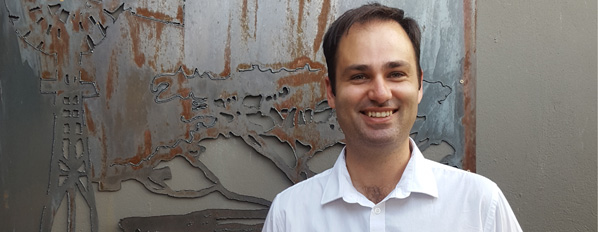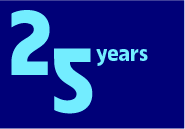
Jean-François Colas
Krull is currently half way to attaining his doctoral degree in Seamless Learning through the UOC's doctoral Programme in Education and ICT
Greig Krull is currently half way to attaining his doctoral degree in Seamless Learning through the UOC’s doctoral Programme in Education and ICT and with the support of his supervisor Josep M. Duart, professor in the UOC Faculty of Psychology and Education Sciences. Greig is an educational technology specialist from South Africa. He has already published several research articles on open educational practices. In this interview, Greig shares with us a bit about his doctoral research journey. You can read more about Greig and his doctoral degree on his blog: Multi-Device Learning Study.
Greig, your blog talks about your doctoral degree in Seamless Learning. Could you explain this concept and what your main research question is?
The idea of seamless learning is that students are able to perform multiple learning tasks in a variety of different contexts or situations and easily switch between tasks and contexts, by making use of their personal devices. These devices include laptops, tablets and mobile phones. For example, a student may begin reading an article on a desktop at work, continue reading the article on the train home on his mobile and later begin writing his assignment using his laptop. In the past, a goal within e-learning was for each student to have access to a device. Now students have access to a multitude of different devices. My research investigates how students use multiple electronic devices for learning, what patterns are emerging around using devices for learning, and what support such students need from the university. The aim of my research is to understand the study habits of distance students who make use of multiple devices to create seamless learning experiences. The main research question is: “How do students at open and distance universities use multiple devices to support their learning tasks seamlessly?” I am following a case study approach, looking at undergraduate students at the UOC and at the University of South Africa (UNISA).
How does your current doctoral research relate to your experience and motivation?
I think that my current research is a continuation of my professional exploration into how new technologies can be effectively used to support teaching and learning. I have spent my professional career designing e-learning materials and courses or teaching others how to use educational systems like Moodle, etc. My qualifications were in Information Systems, but I have always been drawn to helping people learn. I am also interested in how open education can increase access to and success in education. My initial idea for my doctoral research was to focus on the use of mobile devices, particularly smartphones and how they can be used for learning. Because, with a smartphone, you always have access to the Internet in your pocket, and this changes how you approach learning. However, during the planning stage, I realized that smartphones are limited in how they can be used for learning, and students have access to different devices. Many students still need a central device such as a laptop or desktop to complete their studies. So I became interested how students can make use of multiple devices when they study, move between devices, use them together, etc.
Why did you choose to do your doctoral degree at the UOC?
It took me a few years to be able to be in a position to go for a doctoral degree. I really wanted to do it outside of South Africa so that I could be exposed to ideas and research in a different context and gain international experience. I also wanted to be able to pursue my doctoral degree full-time, so that I could dedicate all my time to it. I spent a few years looking at and applying for doctoral study opportunities where scholarships were available. I found out about the UOC Doctoral Grants through an ICDE newsletter. So I applied and, to my surprise and joy, I received a grant to study here. The UOC was a great choice for me because it is a distance university and has expertise and experience from providing online learning for so many years. I really wanted to be surrounded by e-learning experts. Plus, now I have the privilege of living in Barcelona for a few years.
What will the key benefit of attaining “seamless learning” be and how do you envision the future of e-learning?
The key benefit of seamless learning is the continuity of the learning experience across different settings. So, learners can learn anytime and anywhere that suites them, and easily continue learning where they left off before. It is really about providing learners with choices about what to learn, where and when, and how they access learning resources. Students can use whatever devices and tools to which they have access to be able to complete their studies. I think the future will see more of a blurring of the boundaries between formal and informal learning. I think that the future of e-learning will continue to offer greater flexibility to students. For example, why does a student have to submit a written assignment, when they can also create and edit a video on their phone? Why does a student have to read a long article when instead they can watch a YouTube video? Thus the learning experience can be more adaptive to the learner’s context, and this enables learning to be more personal. In my opinion, too many e-learning courses today still consist of students having to read a few PDF files, perhaps make a few posts in discussion forums and submit a written assignment. With the availability of the educational and other tools and technologies that are out there, we can and must offer our students so much more.
What support is most needed in developing countries to ensure effective access to open online learning opportunities?
I think that in South Africa, and for many other developing countries, the key support that is needed for online learning is affordable and high-speed Internet access. For most students, data costs are too high, as data bundles in South Africa are very expensive. In a context of rising university fees where higher education is out of reach for many (see the #FeesMustFall movement), access to online learning resources is an additional cost. Another problem is that, even if students have money for data, in many parts of the country the availability of high-speed Internet is not there. I have spoken to many students who, for example, would love to learn from YouTube videos, but due to poor Internet connections, they are simply not able to. Open, online learning has great potential to expand access to education in South Africa. But this is an ongoing challenge that needs to be dealt with by government, university and Internet provider stakeholders. Another key challenge in South Africa is to prepare students for independent and lifelong learning. Because of our educational systems, many university students are not prepared for studies without a teacher standing in front of them providing instruction. So, a lot of support is needed to help students develop the lifelong study skills needed to be able to learn successfully online.
About your day-to-day experience of the doctoral programme: what activities do you engage in, who do you interact with and what difficulties to you encounter and how do you respond?
My typical daily activities are the usual research activities, such as reading the literature, following the blogs of experts and continuing with my own data collection and analysis. I have a weekly meeting with my supervisor who provides guidance, advice and ensures that I am progressing. I share a large office space with several other grant holders in 22@. I interact with the other doctoral grant holders every day, particularly from the e-learning programme. We provide each other with help and support. We have a good mix of local and international students and have developed into a small community. One of the really nice things about being at the UOC is that there are always experts, from Europe and across the world, who visit the UOC and offer face-to-face and online seminars. I have also benefited from doing a research stay in South Africa, where I could collect my data. I think one of the challenges as a doctoral degree grant holder is that we do not have any contact with the UOC teaching activities. Especially in the case of the e-learning programme, I think we would benefit from being involved in some of the teaching functions.
How does your life in Barcelona contribute to the overall experience of the doctoral journey. Any anecdotes to share?
Being an international student is a very interesting experience. I enjoy a different European lifestyle here. However, I still struggle with the language and cultural differences, and I miss home. But Barcelona is a beautiful city with lots to explore. And of course it is next to the coast and the weather is fantastic. When I tell people in South Africa that I am studying in Barcelona, they are immediately jealous and ask how I ended up being so lucky.
Is your doctoral degree changing you somehow, your conception of research? What type of career do you have in mind for yourself after you complete it?
I do not think that my doctoral degree is changing my understanding of research. But I do feel that the degree is making a big difference in my skills and abilities as a researcher. Studying for a doctoral degree is a challenging yet rewarding experience. My plan is to continue in the academic field. If I want a career as an academic, a doctoral degree is a necessity. Once I finish, I may look at an international postdoctoral fellowship. But I would like to work in a university, either in an academic department or in a support unit such as the eLearn Center. I love teaching and working with students and lecturers and I would like to continue to be able to research in this field as well.
Anything else you want to add before we finish up here? Any advice you would like to share with future doctoral degree students?
I think my advice for future doctoral students is to be flexible in your research. Many of your initial ideas will not be able to be implemented, or you will experience several delays in your progress. Therefore, having backup plans is very important. Also, surround yourself with a good support system (whether it is your supervisor, fellow students, work colleagues, friends or family) with whom you can openly discuss your progress and challenges. Finally, take advantage of any opportunities that come your way to continue to learn, especially about topics that are not directly related to your research interests.

